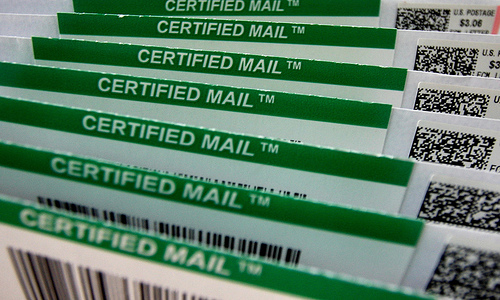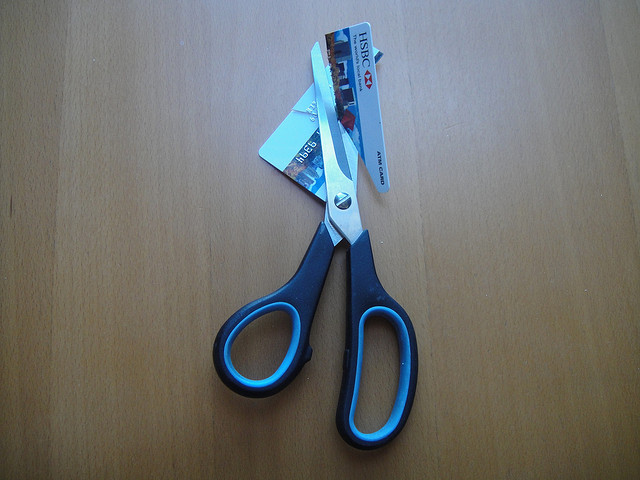
by Adam | Dec 26, 2014 | Credit Repair
It’s that time of year again. The time of year when 38% of Americans resolve to lose weight, and 34% make money-related resolutions. Despite these lofty goals, only 8% of Americans will actually achieve their New Year’s resolution. The old standard resolution to “spend less, save more” is a wise choice, but perhaps a bit too vague. The best resolutions are specific and actionable. Rather than spend less, you could resolve to cut out your daily trip to Starbucks and brew coffee yourself instead. That in and of itself will result in spending less and saving more. In the spirit of helping you come up with specific, actionable new years resolutions, here are a few ideas that will help you raise your credit score in 2015. I Resolve to Protect Myself Against Identity Thieves The majority of identity theft is preventable. That’s because would-be thieves prefer to go after the low-hanging fruit: consumers who are careless with their personal information. To avoid having your credit wrecked by identity theft this year, resolve to secure your personal information at home and online. Here are a few ideas: Create strong, unique passwords for all online accounts Organize and find a safe, secure place to store documents like tax records Resolve to never share financial or identifying info on social media Educate your children on appropriate and safe online behavior I Resolve to Create a Budget A budget is your ticket to savings. Rather than make a goal to save money, resolve to put a budget in place that will actually achieve that goal. Everyone’s situation is different, and so you’ll have to come up with a...

by Adam | Dec 19, 2014 | Credit Repair
If you think credit report errors are few and far between, consider this statistic: an FTC study recently concluded that as many as 40 million Americans have credit reports containing errors. Half of those reports contained errors that could negatively impact their credit score. Released in 2013, the study spanned 8 years of research. In the study, participants were encouraged to dispute errors found in their credit report. Of those who disputed errors: 20% had an error corrected once it was disputed 10% noticed a change in their credit score after disputing a credit error 5% experienced a score change of more than 25 points Only one in 250 consumers’ score was changed by more than 100 points Clearly, credit report errors are widespread, with mistakes hurting the scores of millions of Americans. Worst-Case Scenario for one Ohio Nurse In an interview with the CBS News show 60 Minutes, Judy Thomas, a trauma nurse from Cleveland, Ohio, detailed a series of events that might just describe the kind of worst-case scenario that happens all too often when it comes to credit report errors. Thomas, who spent years working hard to build good credit, was denied out of the blue for a credit card. An initial look at her credit reports showed no errors, but the denials for credit kept coming in. Finally, Thomas discovered the credit report that the 3 credit bureaus show to creditors (which is different from the one they give to consumers) contained debt and collections from a completely different person in Utah. What should have been an easy fix turned into a years-long ordeal that finally culminated...

by Adam | Dec 12, 2014 | Credit Repair
Credit card accounts don’t go away on their own, but you should make a few consideration before chopping up a bunch of credit cards with scissors. Why Cancel a Credit Card Account? There are many good reasons for closing a credit card: An open credit card account that you don’t use is at risk for identity theft You may wish to close a credit card account so you are not tempted to use it and get in more debt Annual fees or expired promotions make it unfeasible or costly to keep it open You want to close a card with a high interest rate and open a new one with a lower rate When You Should Keep A Credit Card Account Open It’s not always wise to close a credit card account, and it has to do with your credit score. Your “credit utilization rate” is one factor the credit bureaus use to determine your score, and when you cancel a credit card account you are reducing your available credit. If you are carrying debt, then your utilization rate will go up because your current debt will be a larger percentage of your overall credit limit. A utilization rate above 10% will start to have a negative impact on your score. It’s also a good idea to keep certain accounts open for a long time, since it shows that you have a long credit history, which can improve your score. If you’ve had a credit card account for many years, it might be a good idea to keep it open. How to Close a Credit Card Account Safely Without Dinging Your Credit...

by Adam | Dec 8, 2014 | Credit Repair
Credit repair can be frustrating and complex. To determine your credit score, the credit bureaus take into account many different factors which they weigh in different amounts. While there are many things you can do that will help improve your score over time, there are many myths about credit repair that just won’t go away. Let’s go over 5 of the most common credit repair myths, so you can separate myth from reality when it comes to improving your credit score! Myth 1: Closing multiple accounts will increase my score Some people think that if they close all their credit card accounts after they’ve paid them off, not only will it help keep them from racking up more debt but it will also improve their score. The truth is that while paying down your debt will help raise your score, closing a bunch of accounts will reduce your overall “credit limit,” or the amount of credit available to you. This can actually hurt your score, since the credit bureaus want to see that you have available credit, but that you’re not using too much of it. Instead, keep one or several credit card accounts open, but don’t use more than 10% of the available credit (or better yet, pay them down to zero every month). Myth 2: Opening multiple accounts will magically increase my score If having a lot of available credit improves your score, then opening a bunch of new credit cards should give you a good boost, right? Wrong. The credit bureaus also take into account “credit inquiries,” and every time you open up a new line of...






Recent Comments